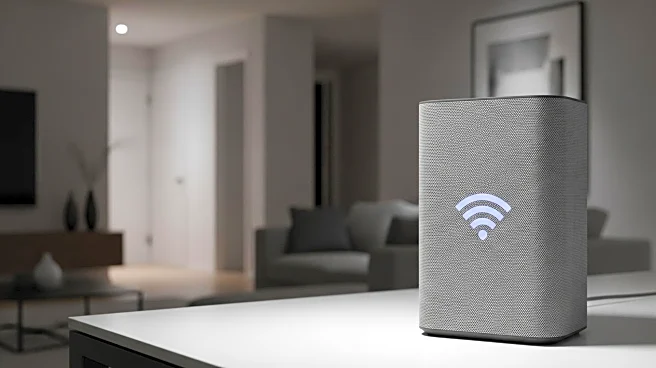What is the story about?
What's Happening?
Bose has announced that it will discontinue support for its SoundTouch Smart WiFi Speakers, effective February 18, 2026. Introduced in 2013, these speakers allowed users to connect to online streaming services and play audio across multiple speakers using a mobile app. The discontinuation means that these features will no longer be available, and users will have to rely on Bluetooth or physical connectors such as audio jacks or HDMI ports to use the speakers. This decision affects various models, including the SoundTouch 520 home theater system. The announcement has sparked discussions among users and hardware hackers, who have previously explored ways to access the Linux OS powering the SoundTouch system.
Why It's Important?
The discontinuation of support for Bose SoundTouch Smart WiFi Speakers highlights the challenges consumers face with smart technology that can lose functionality over time. This move may impact users who rely on WiFi-based streaming and the convenience of app-controlled audio systems. It underscores the broader issue of technology companies phasing out support for older products, potentially leading to increased electronic waste and consumer dissatisfaction. Hardware hackers may find new opportunities to repurpose or modify these devices, but average consumers may be left with less functional equipment.
What's Next?
As Bose phases out support, users will need to adapt to the reduced functionality of their SoundTouch speakers. This may involve exploring alternative methods to maintain connectivity, such as using Bluetooth or physical connections. The decision may prompt consumers to consider upgrading to newer models or brands that offer continued support and advanced features. Additionally, hardware enthusiasts may continue to explore ways to hack or modify the speakers to extend their usability.
Beyond the Headlines
The decision by Bose to discontinue support for its SoundTouch speakers raises questions about the sustainability of smart technology and the lifecycle of consumer electronics. It highlights the potential for increased electronic waste as devices become obsolete. This situation may encourage discussions on the need for more sustainable practices in the tech industry, including longer support periods and easier repair options for consumers.
















